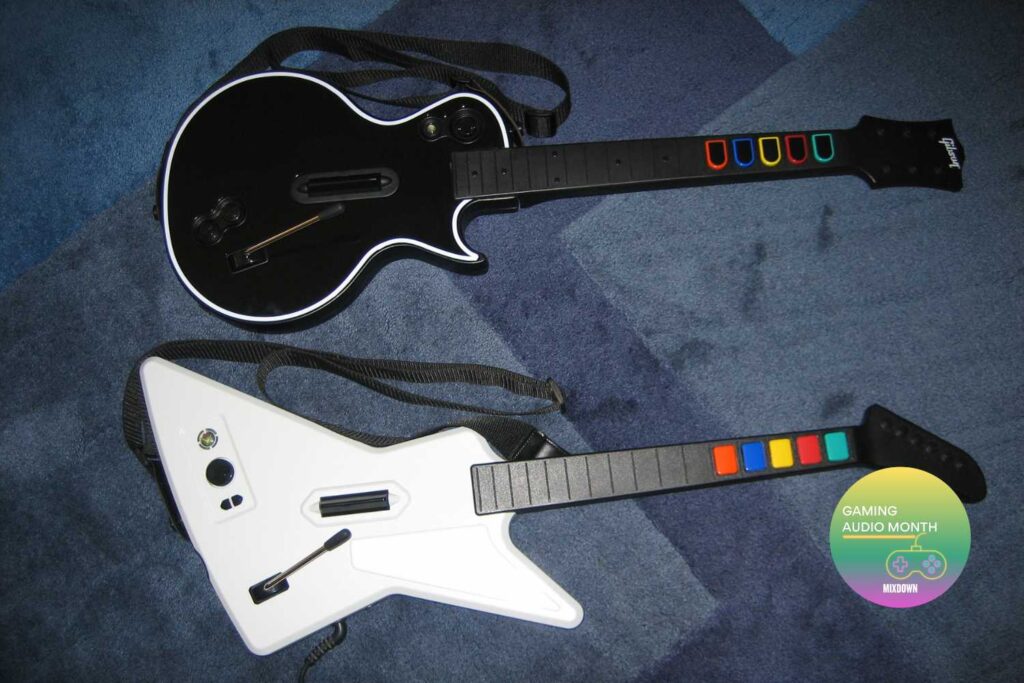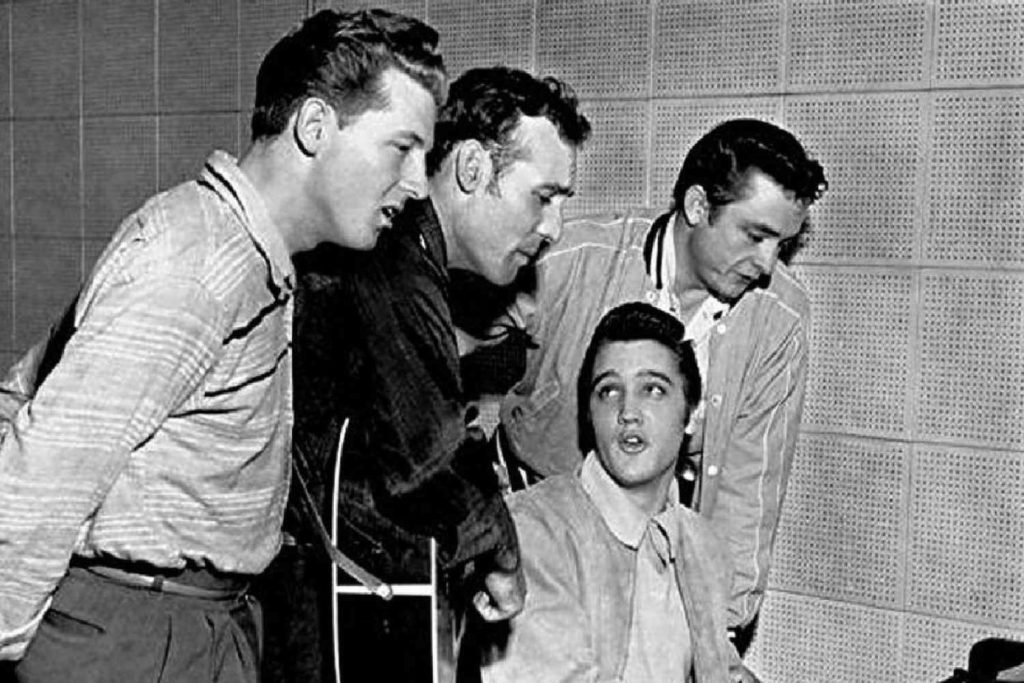From Tool and Pink Floyd through to Outkast and Björk, we explore 13 famous tracks that go against the grain.
Ever listened to track that you can’t count along with? Chances are, they’re probably played in unconventional time signatures.
Songs with weird time signatures
Odd time signatures such as 7/8 and 5/4 have been used by some of the biggest names in music to make their tracks stand out from the rest, and will never fail to provoke heated debates among would-be musicologists lurking in YouTube comment sections.
Weirdest time signatures
Today, we’re turning our attention to some of the most iconic instances of unconventional timing in popular music, as well as a few deceptive tracks that stick within the confines of 4/4 despite sounding like they’re written in anything but 4/4.
So, dig out that metronome and strap yourself in – we’re about to get weird.
Read up on all the latest features and columns here.
We’re taking a little break here at Mixdown and so should you. We’re reposting some old favourites of yours and ours!
Dionne Warwick – ‘Say A Little Prayer’
Dionne Warwick’s 1967 classic ‘Say A Little Prayer’ might have one of the catchiest choruses of all time, and its secret lays within the weird multimeter used by Burt Bacharach and Hal David.
The chorus starts with two bars of 4/4, heads up to 10/4 for one measure, then goes back to 4/4 for two measures before finishing with a bar of 11/4. Who would’ve thought such a catchy song would be so complex?
Pyramid song time signature
Radiohead – ‘Pyramid Song’
Radiohead have written plenty of tracks with quirky time signatures over the years – ‘15 Step’, ‘Everything In Its Right Place’ and ‘Paranoid Android’ are barely even scratching the surface – but there’s no song that bamboozles fans and musicians quite like ‘Pyramid Song’.
The heavily swung feel of this song has led to some pundits associating it with 3/4 or 12/8, while some even claim it’s best counted as 3/4 + 2/4 + 3/4.
However, many have since agreed that the best way to count ‘Pyramid Song’ is in 16/8 time, subdivided as 3+3+4+3+3 – possibly making up the titular pyramid of the song itself. Mind = blown.
The Stranglers – ‘Golden Brown’
This upbeat 1981 ode to hard drugs and pretty girls is best remembered for its jaunty harpsichord played by the late Dave Greenfield, but when you dig a little deeper, there’s a lot going on in ‘Golden Brown’.
While the majority of the song sticks within a reasonably tame meter of 12/8, the introductory riff is actually performed in 13/8 (counted as 3+3+3+4), which might explain why it sticks out so much within The Strangler’s discography.
Nine Inch Nails – ‘March of the Pigs’
Trent Reznor certainly isn’t inexperienced when it comes to odd time signatures – ‘The Becoming’ kicks off in 13/8, and ‘Just Like You Imagined’ used the weird meter of 10/4 – but ‘March of the Pigs’ takes things to ridiculous new level.
While the chorus plays things safe in 4/4, the rest of this cacaphonic industrial belter is counted in the ungodly meter of 29/8, which is best counted as 7+7+7+8. Why Trent, why?!?
Outkast – ‘Hey Ya!’
Andre 3000’s hugely successful cut from Outkast’s 2003 double album Speakerboxx / The Love Below has confused many a music student over the years with its staggered groove, leading many to assume it’s counted in 11/4.
As it turns out, however, there’s no trickery going on here – ‘Hey Ya!’ sticks within the constraints of 4/4, with its quirky beat coming from a cadence that gives it a continuous, offbeat feel.
Rush – ‘Tom Sawyer’
Being one of the most famous progressive rock groups of all time, Rush have written their fair share of confusing, flashy tunes.
However, their signature song ‘Tom Sawyer’ stands out as being a notable example in their discography, featuring an epic bridge written in the meter of 7/8 and made special by the exceptional groove and technique of the late great Neil Peart.
Regardless of your thoughts on Rush, you simply can’t deny the brilliance of his performance on this track.
System of a Down – ‘Question!’
Of course, System of a Down are renowned for being some of the biggest weirdos in the history of metal, so it should come to no surprise that their Mesmerize cut ‘Question!’ features no less than four time signatures peppered throughout.
The song kicks off with an acoustic intro and verse played in 9/8, with guitarist Darron Malakian playing a riff in 5/4 afterwards, with the whole band later transitioning to 3/4 for the choruses before wrapping things up in 4/4 – my brain hurts.
Tool – ‘Lateralus’
We all know that Tool love a good brain bender – their entire career has revolved around writing and performing the most confusing songs they possibly can, which is probably why it took them 13 years to write their last album.
These guys have plenty of awesome examples to look at – ‘Schism’ is essentially counted in 6.5/8, and Fear Inoculum standout ‘7empest’ constantly fluctuates between 5/4 and 8/11, but perhaps their most famous instance of musical fuckery is with the Fibonacci-inspired ‘Lateralus’, which modulates between 7/8, 8/8 and 9/8 in tandem with the progression of Maynard’s lyrical patterns. Big brain stuff indeed.
Björk – ‘Crystalline’
Björk is one of the greatest sonic innovators of the modern age, and has toyed with many eccentric songwriting ideas over the course of her career.
Her 2011 visual album Biophilia sees the Icelandic avant-garde icon experiment with a multitude of different time signatures that range from 6/8 through to 7/4, with three of the record’s best tracks – ‘Crystalline’, ‘Moon’ and ‘Hollow’ – all being counted in 17/8.
These signatures are complex enough to confuse even the most studious of session hounds, yet somehow, Björk makes it sound easy – but really, when has she ever sounded out of her depth?
The Beatles – ‘Happiness Is A Warm Gun’
Whether it’s ‘All You Need Is Love’ or ‘Here Comes The Sun’, there’s plenty of examples in The Beatles’ discography that reside outside the realms of 4/4, yet there’s one song that sticks out from the pack: The White Album’s ‘Happiness Is A Warm Gun’.
This three-part epic starts in 4/4, 2/4 and 5/4, with the second section lingering on 3/8 before transitioning to the whacked out third section, which features a combination of 9/8, 10/8 and a single bar of 12/4 to top it all off at the end.
Frank Zappa – ‘Keep It Greasy’
Frank Zappa made millions off of being music’s greatest weirdo, and his compositions were often just as odd as his public persona.
One of his most noted instances of working outside of regular meters is on ‘Keep It Greasy’ from the anti-censorship opus Joe’s Garage, which features some of Zappa’s finest fretwork caught on tape – as well as a very unfortunate album cover that sees him donning blackface.
The first verse, a number of sections in the bridge and the guitar solo in ‘Keep It Greasy’ are counted in the head-scratching signature of 19/16, while the second verse takes things up a notch by going to 21/16. Bonkers.
King Gizzard and the Lizard Wizard – ‘Gamma Knife’
Everyone’s favourite Aussie psychonauts King Gizzard and the Lizard Wizard have had many a fling with unconventional time signatures – in fact, almost every track on their 2016 breakthrough Nonagon Infinity has a notable moment in an odd signature that helps to make it the psychedelic opus we know and love.
You can check out all the changes in sequential order in this dedicated Reddit thread, but for the purpose of this article, we’re going to pinpoint ‘Gamma Knife’ as the standout, which revolves around an 11/8 signature for the intro, drum solo and the verses surrounding the primary chorus.
Pink Floyd – ‘Money’
What list on unconventional time signatures would be complete without an entry from Pink Floyd? A stand-out moment from The Dark Side Of The Moon, ‘Money’ features one of the most famous basslines Roger Waters ever recorded, lumbering along in 7/4 to make for an unforgettable groove.
However, in recent years, Waters and Gilmour have each put a case forward suggesting that the song is best counted in 7/8, which really goes to show that odd time signatures can confuse even the most titanic of players. Moral of the story? Just stick to 4/4.
Looking for a masterclass? Check out the odd-timing played by Meshuggah’s Thomas Haake in “Combustion“.







